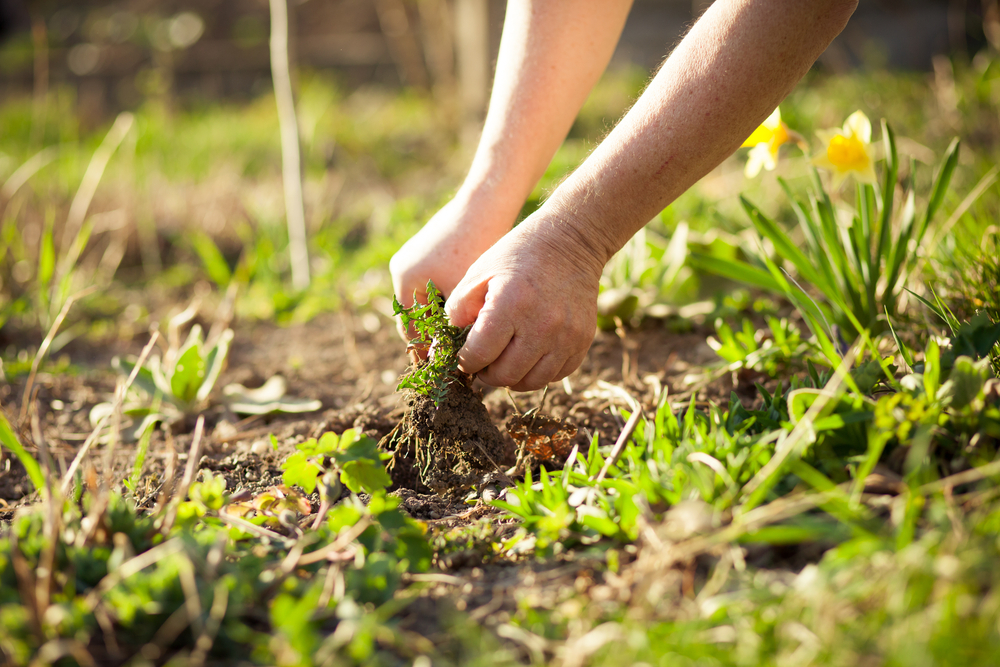Organic Weed Control, Eco-Friendly Tips

Organic Weed Control for Gardens: Eco-Friendly Tips for a Happy, Healthy Garden
Gardening is a labor of love, but weeds? Not so much. Before you reach for the heavy-duty chemicals, consider organic weed control. It's safer, eco-friendly, and with a little patience, just as effective. Let's dive in!
Why Choose Organic Weed Control?
First things first, why go organic? Well, for starters, it's better for you, your family, and the environment. Organic gardening tips focus on natural methods that won't leave nasty residues on your plants or in your soil. Plus, it's a great way to maintain a healthy ecosystem right in your backyard.
Understanding Weeds: A Gardener's Nemesis
Before we get into the nitty-gritty of organic weed control, let's understand our enemy. Weeds are plants that compete with your garden for water, nutrients, and sunlight. They're tough, resilient, and seem to pop up overnight. But don't worry, we've got a plan.
Prevention is Key: Stopping Weeds Before They Start
The best way to control weeds is to prevent them from growing in the first place. Here are some weed prevention tips:
- Healthy Soil: Weeds love weak, compacted soil. Keep your soil healthy and well-aerated with plenty of organic matter.
- Mulch: A thick layer of organic mulch blocks sunlight, preventing weed seeds from germinating.
- Plant Cover Crops: In empty beds, plant cover crops to outcompete weeds and improve soil health.
Natural Herbicides: The Power of Plants
When it comes to eco-friendly weed control, natural herbicides are a gardener's best friend. Here are a few to try:
- Vinegar: The acetic acid in vinegar is a potent weed killer. Just be careful where you spray it, as it can harm other plants too.
- Corn Gluten Meal: This natural byproduct of corn milling prevents weed seeds from germinating.
- Essential Oils: Certain essential oils, like clove and cinnamon, have herbicidal properties.
Manual Weed Control: Getting Your Hands Dirty
Sometimes, the best way to tackle weeds is the old-fashioned way - by hand. Hand weeding is particularly effective for small gardens or when dealing with young weeds. Remember, the goal is to remove the weed before it goes to seed.
Tools of the Trade: The Best Weeding Tools
The right tools make all the difference. Here are some must-haves for your weeding arsenal:
- Hand Trowel: Perfect for digging out deep-rooted weeds.
- Hoe: Great for chopping down weeds and cultivating the soil.
- Weeding Fork: Ideal for prying out tough weeds.
Organic Pest Control: Dealing with Weed Seeds
Weeds produce a lot of seeds, and those seeds can stick around in your soil for years. Organic pest control methods, like introducing beneficial insects and using row covers, can help reduce the number of weed seeds in your garden.
Solarization: Harnessing the Power of the Sun
Soil solarization is a non-chemical method of controlling weeds (and pests) using the sun's heat. It's a bit of a process, but it's highly effective and well worth the effort, especially for large, infested areas.
Ground Covers: Outcompeting Weeds
Planting ground covers is a great way to outcompete weeds. They fill in empty spaces, block sunlight, and rob weeds of the resources they need to grow. Plus, they look great!
The Role of Watering: Don't Feed the Weeds
Weeds love water just as much as your garden does. To avoid giving them a drink, try drip irrigation. It delivers water directly to your plants, leaving weeds high and dry.
When to Call in the Pros
Sometimes, despite our best efforts, weeds get the upper hand. If you're feeling overwhelmed, don't hesitate to call in a professional. Look for companies that specialize in organic weed control for gardens.
For more tips and tricks, check out this guide to organic weed control from Gardener's Supply Company.
Patience and Persistence: The Organic Gardener's Mantra
Organic weed control takes time and effort. Don't get discouraged if you don't see immediate results. Stick with it, and remember, every weed you pull is one less weed going to seed.
Conclusion
Organic weed control is more than just a method; it's a mindset. It's about working with nature, not against it. It's about creating a healthy, sustainable garden that's safe for you, your family, and the environment. So, roll up your sleeves, grab your gloves, and let's get weeding!
FAQs
Q: What is the best natural weed killer?
A: There are several effective natural weed killers, including vinegar, corn gluten meal, and certain essential oils. The best one depends on your specific needs and the types of weeds you're dealing with.
Q: How can I prevent weeds from growing?
A: Preventing weeds is all about creating an inhospitable environment. This includes maintaining healthy soil, using mulch, planting cover crops, and practicing smart watering.
Q: Is pulling weeds better than using herbicides?
A: Pulling weeds is often better than using herbicides, especially if you're committed to organic gardening. It's safer, more eco-friendly, and can be just as effective with a little patience and persistence.
Q: What tools do I need for weeding?
A: A hand trowel, hoe, and weeding fork are essential weeding tools. They help you dig out deep-rooted weeds, cultivate the soil, and pry out tough weeds.
Q: When should I call a professional for weed control?
A: If weeds have taken over your garden and you're feeling overwhelmed, it might be time to call a professional. Look for companies that specialize in organic weed control methods.
0 Response to " Organic Weed Control, Eco-Friendly Tips"
Post a Comment